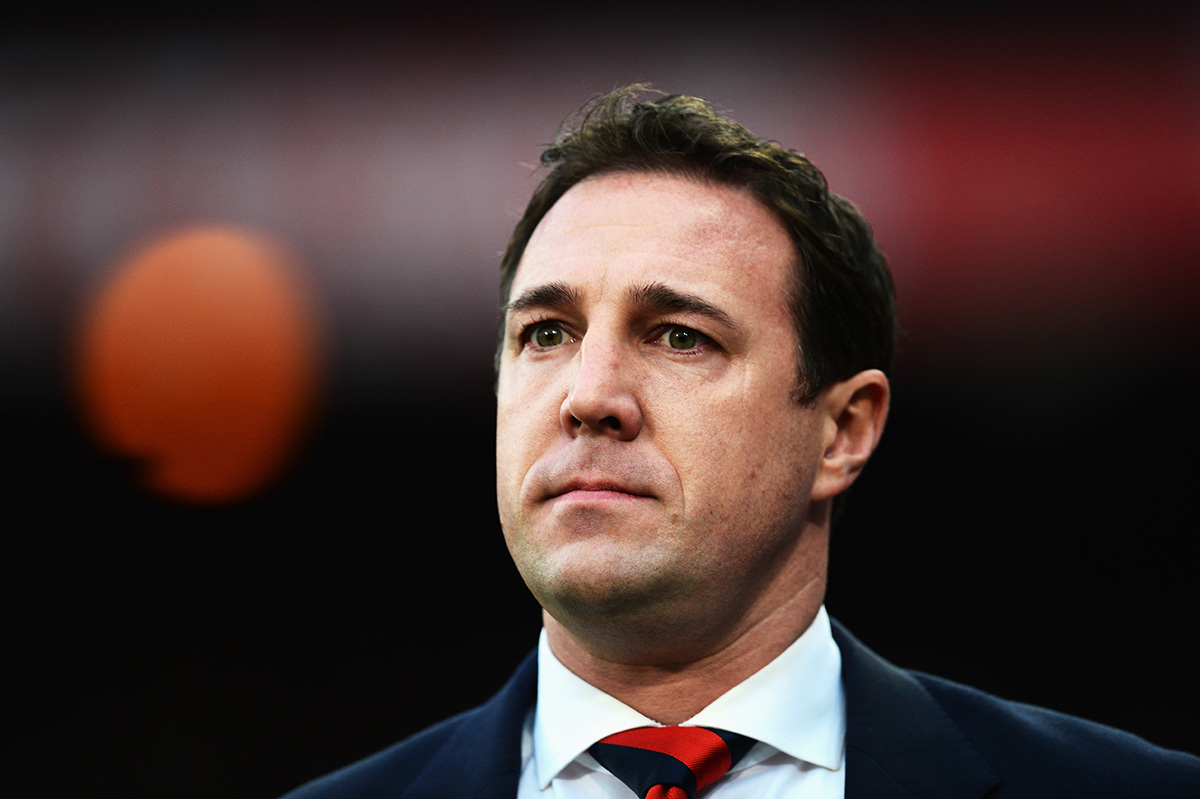
EVERY manager tries to turn a negative situation into one with a positive outcome.
That has certainly been the case for Malky Mackay in the past couple of years.
After losing his job at Cardiff City in December, 2013 after a much-publicised dispute with owner Vincent Tan, he got back into the game last year when he took over at Wigan Athletic. He parted company with the Latics five months later.
But the 43-year-old Scotsman is in a positive frame of mind and has used his time out wisely. A student of the game and always keen to innovate, he feels he is now wiser and ready for his next challenge.
Mackay feels managerial remits are on the verge of changing for the better and the introduction of partnerships between sporting directors and head coaches will give the men in the direct line of fire more longevity and a greater chance of being successful.
Mackay has been seeing the inner workings of a two-year Sporting Director Masters Degree course, which is approved by the FA, PFA and LMA, at Manchester Metro University.
It’s for football, cricket and rugby and is expected to signal a significant shift in the way football clubs in the UK are structured.
“I’m friendly with Andy McIntyre and Tony Falconer. They are businessmen and help to run this Masters Degree,” said Mackay.
“They asked me to be a guest speaker at the course. Les Reed, Chris Powell, Gary Bowyer and Uwe Rosler were also there. We focused on key relationships within a football club and how best for a head coach to succeed.
“He needs someone beside him that he can trust, has a knowledge of football and the ear of the owner. That’s part of the criteria we want a sporting director to have.
“In previous times you maybe had a manager move ‘upstairs’ to a director of football role, and they were viewed as a threat by the manager because, more often than not, if the manager got sacked the guy ‘upstairs’ would take over team matters.
“The sporting director would hire the head coach. He would interview candidates, and show them the exact remit of what the head coach’s job entailed so everyone would have a clear understanding of their role.
“The manager would have no need to be wary of the sporting director because this new breed are not interested in being a coach. They are there to focus and succeed as a sporting director.
“The head coach, obviously, would need to buy into it. But I can see so many advantages.
“For example, a manager isn’t in the best frame of mind to deal with boardroom members after a defeat. He will often want to be left alone to reflect.
“The sporting director can take some of the heat away and soften the blow of a defeat by dealing with the boardroom and answering any questions. It is perfect for there to be a buffer between owner and manager.
“A change of mindset in the UK is required for it to succeed. Managers need to be able and willing to adapt. If you don’t, you will get left behind.
“It’s evident there is a quick turnaround of managers. Some owners now don’t bat an eyelid at having three managers in one season. That has to change. It doesn’t allow for stability and a strategy to be implemented.
“I’d see it as an advantage to have a sporting director at the club in the next job I take. I had a sporting director at Watford and a head of recruitment at Cardiff.”
With so many owners wanting a say in recruitment and input on team selection, the old style managers job as we know it may well become obsolete. No one will ever have the power a Sir Alex Ferguson or Brian Clough or Jim McLean had 30 years ago.
Mackay will embrace change, as long as every detail is discussed and defined, and that could mean a return to Scotland. He has never managed north of the border but wouldn’t rule it out.
Having taken Cardiff into the EPL in May, 2013, Mackay has a fine reputation as a coach.
The former Celtic, Queens Park and Scotland defender said: “I’ve got the urge again to get back in. I was at Wigan Athletic but it was only for a few months.
“It was blow for me that the owner Mr Whelan had to step down halfway through the process.
“It’s now about waiting for an opportunity. I just want the chance to sit down in front of a chief executive and/or a sporting director to explain what I can bring to their football club.”
READ MORE
Leicester City manager Claudio Ranieri: I’m back at the top level thanks to The Sunday Post!
Is Alex Neil the last of a dying breed of Scottish managers in the Premier League?

Enjoy the convenience of having The Sunday Post delivered as a digital ePaper straight to your smartphone, tablet or computer.
Subscribe for only £5.49 a month and enjoy all the benefits of the printed paper as a digital replica.
Subscribe